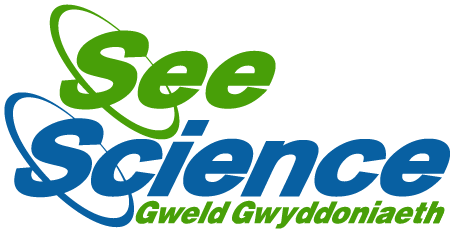Grants
Last updated: 5 February 2026
Mullany Digital Mentoring: Helping Young People in Wales into STEM Careers
 The Mullany Fund are a social mobility organisation working for young people in Wales. Our digital mentoring programme is free to learners, and provides one-to-one advice to Years 9-13 who want to learn more about STEM career pathways. The programme is tried and tested and won STEM Educational Project of the Year (not for profit) at the STEM Awards Wales 2024. Our mentors are particularly experienced at advising young people from backgrounds where careers informationis scarce or opportunities are low. Many of our mentees say how the programme has built their confidence, or boosted their motivation in upcoming exams. Learners register here: https://themullanyfund.org/en/students/registration/
The Mullany Fund are a social mobility organisation working for young people in Wales. Our digital mentoring programme is free to learners, and provides one-to-one advice to Years 9-13 who want to learn more about STEM career pathways. The programme is tried and tested and won STEM Educational Project of the Year (not for profit) at the STEM Awards Wales 2024. Our mentors are particularly experienced at advising young people from backgrounds where careers informationis scarce or opportunities are low. Many of our mentees say how the programme has built their confidence, or boosted their motivation in upcoming exams. Learners register here: https://themullanyfund.org/en/students/registration/
If you are a school or college new to the programme and have any questions – get in touch with us Mullany:office@themullanyfund.org
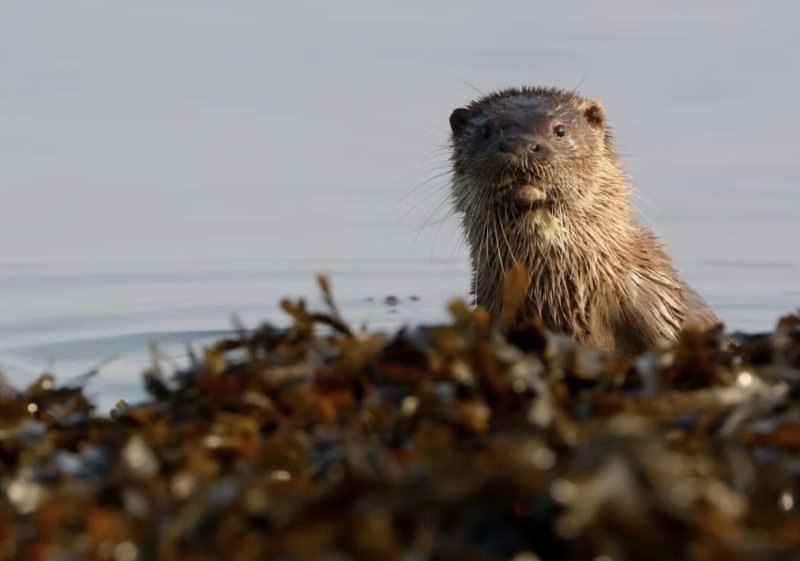 Funding for Marine Conservation Projects (UK)
Funding for Marine Conservation Projects (UK)
Marine conservation charities and not for profit organisations (including schools) based and working in the UK can apply for grants of up to £2,500 towards projects and research that address the root causes of marine conservation threats and challenges in the UK, and increase the number of people taking action for marine conservation. The funding, made available through the Sea-Changers Main Grants programme, aims to support creative and innovative approaches that yield lasting benefits and outcomes. Sea-Changers is particularly interested in grassroots projects which galvanise community action and in projects which increase the number of people taking action for marine conservation. Small grants of up to £500 are also available. Applications to the Small Grants programme can be made at any time. The next application deadline for the Main Grants programme is 31 March 2026. More detais here.
Crest Awards Engage Funding
 Engage funding refers to two modes of support for schools in challenging circumstances, Engage Grants and Engage Simply CREST.
Engage funding refers to two modes of support for schools in challenging circumstances, Engage Grants and Engage Simply CREST.
The funding is to help schools run CREST Awards with students who are from backgrounds and groups underrepresented in STEM.
Applications open Autumn Term 2025. Here is the link
CREST resources are available for free to all schools, but there are still costs associated with running CREST that may be a barrier for some schools.
Outreach and Engagement Grant
 Eligible members can apply for up to £1000 to support relevant science outreach or public engagement initiatives that engage new audiences in the art and science in any aspect of microbiology. Activities should inspire and educate people about the importance of microbiology and its advances. Maximum award: £1000
Eligible members can apply for up to £1000 to support relevant science outreach or public engagement initiatives that engage new audiences in the art and science in any aspect of microbiology. Activities should inspire and educate people about the importance of microbiology and its advances. Maximum award: £1000
Deadlines:1 October 2025
Eligible membership categories: Full, Full Concessionary and Postgraduate Student Members
Minimum membership: One year membership and two consecutive membership subscription payments required.
Enquiries about this scheme should be made by email to grants@microbiologysociety.org
GFunding for International Education Partnerships (Wales)
 Taith Pathways 2
Taith Pathways 2
Taith is an international learning exchange programme for Wales. Open to the further education, vocational education and training, adult education, schools, and youth sectors in Wales, Taith Pathway 2: Partnership and Strategic will fund collaborative projects between eligible organisations and their international partners that share expertise and best practice to address specific issues or strategic priorities. Projects should focus on either developments in education, diversity and inclusion, or sustainability and climate change. The maximum grant available is £40,000, with amounts varying by sector and project scale - from smaller collaborative initiatives to larger, multi-partner strategic partnerships. The funding will contribute towards travel & subsistence costs, project management and implementation, staff costs, and dissemination costs. Applications will close on the 6th November 2025 and more information here.
Learn More
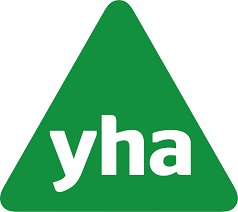 Youth Hostel Offers Bursary Scheme for Towards Residential Stays
Youth Hostel Offers Bursary Scheme for Towards Residential Stays
Schools and colleges in areas of high deprivation in Wales can apply for support towards the cost of a residential stay at a YHA-owned hostel through the Youth Hostel Association’s Bursary scheme. The award can be used towards payment for a school residential with an overnight stay (with or without catering and activities) at any available YHA-owned hostel. The bursary support is valid for stays on the following dates: 2 November 2025 - 28 February 2026.
Keep Wales Tidy - Apply now for free garden packs!
 Are you ready to turn a neglected space into a vibrant garden where nature can thrive? Whether you want to grow fruit and veg, create a green community hub, or boost local biodiversity, this is your chance.
Are you ready to turn a neglected space into a vibrant garden where nature can thrive? Whether you want to grow fruit and veg, create a green community hub, or boost local biodiversity, this is your chance.
We have hundreds of free garden packages to give away to community groups, schools and other community-based organisations.
Our pre-paid packages range from small gardening projects to orchards and large-scale makeovers. Each one includes lots of native plants, tools, resources and other materials.
Keep Wales Tidy handle the orders and deliveries, and our skilled project officers will be there to help you install your new garden. Apply here
Partnership Grants for students with special educational needs and disabilities
 Schools can apply for funding to support investigative research projects that are specifically tailored for students with SEND (Special Educational Needs and Disabilities).
Schools can apply for funding to support investigative research projects that are specifically tailored for students with SEND (Special Educational Needs and Disabilities).
The grant enables schools to purchase equipment to carry out investigative STEM research projects in science, mathematics, engineering or computing. By taking part in these projects, students will have the opportunity to develop essential skills, such as problem solving and data handling skills, readying them for the future world of work.
There needs to be two project partners to the scheme with the lead applicant being a school and the second partner being a STEM professional from academia or industry. Funding should predominantly be used to buy equipment. As the project involves SEND students, there are a few key areas of added flexibility in the eligibility and judging criteria.
There are three submission deadlines at the end of April, June and November. Details here.
The IOP Public Engagement Grant Scheme (PEGS)
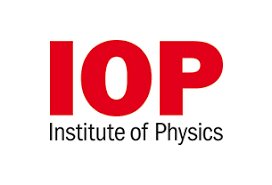 aims to support the IOP Limit Less initiative by funding projects that meaningfully engage whole family groups (including parents/carers) to improve their relationship with physics. This could be by showcasing relatable role models of those doing physics, actively challenging stereotypes and preconceptions, sharing positive messages about physics, and more!
aims to support the IOP Limit Less initiative by funding projects that meaningfully engage whole family groups (including parents/carers) to improve their relationship with physics. This could be by showcasing relatable role models of those doing physics, actively challenging stereotypes and preconceptions, sharing positive messages about physics, and more!
The grant looks to prioritise projects that reach families with young people under the age of 16 who identify with one or more of the following groups:
- Girls and young women;
- Disabled young people;
- LGBT+ young people;
- Young people from disadvantaged backgrounds; and
- Black Caribbean young people.
Round 2: Applications received between 6 May and 1 September. Applicants will receive notification of the outcome of their application in October, and payment no earlier than the end of October. Projects funded in Round 2 must start in 2025 and should be completed by 30 June 2026.
For more information, and to see if you meet our eligibility criteria, download the supporting document on the Main Fund (PDF, 144KB).
Main Fund: The minimum grant award is £500. You can apply for up to £4,000 to run physics-based activities in the UK and Ireland
The Edina Trust Science Grant Scheme
NEW AREAS FOR 2024-25 SCHOOL YEAR - Denbighshire, Newport, Torfaen
 The Edina Trust offers £700 primary school science grants and £500 early years science grants. Grants are available in a local authority area for three years, after which we move on to new areas.
The Edina Trust offers £700 primary school science grants and £500 early years science grants. Grants are available in a local authority area for three years, after which we move on to new areas.
It’s quick and easy to access as the grants are non-competitive, meaning you are guaranteed to get funding if you are in one of the current areas.
Schools can use their grants for:
- Science resources
- Science weeks
- Scientific visits (in or out of school)
- Improving the school's grounds for science
- Gardening equipment
- Science subscriptions
Details of the simple application process are here.
Funding for School Climate & Biodiversity Projects
 The Royal Society is inviting applications to their Tomorrow's Climate Scientists Programme to give students across the UK the opportunity to take action to address climate and biodiversity issues.
The Royal Society is inviting applications to their Tomorrow's Climate Scientists Programme to give students across the UK the opportunity to take action to address climate and biodiversity issues.
Grants of up to £3,000 are available to UK primary or secondary schools to run a STEM investigation project for students aged between 5 and 18. There needs to be two project partners to the scheme with the lead applicant being a school and the second partner being a STEM professional from academia or industry. Funding should predominantly be used to buy equipment.
There are three submission deadlines at the end of April, June and November.
Details here.
Gopher Science Lab grants
 The Royal Society of Biology is offering state-funded secondary schools in the UK an opportunity for two teachers to host a Gopher Science Lab, lab day with invited primary schools, in their school or held as a hybrid event, and supported by a small grant of £500.
The Royal Society of Biology is offering state-funded secondary schools in the UK an opportunity for two teachers to host a Gopher Science Lab, lab day with invited primary schools, in their school or held as a hybrid event, and supported by a small grant of £500.
This includes access to RSB’s Gopher Science Lab online training course to enable the school to train some of its students to deliver the lab day teaching with support from the two lead science teachers. Secondary school teachers working in UK based, state-funded, secondary schools can email Amanda Hardy to apply on behalf of their school for a small grant, which is intended to support schools and their students who for financial reasons would not otherwise have the opportunity to run their own lab day.
Details here.
The Royal Society of Chemistry Outreach Fund
 Our Outreach Fund provides financial support to members, individuals and organisations in order to enable them to run chemistry-based public and schools engagement activities.
Our Outreach Fund provides financial support to members, individuals and organisations in order to enable them to run chemistry-based public and schools engagement activities.
Through the fund we aim to support projects that:
- build the capacity and opportunity within the diverse chemical science community (including RSC members) to engage with a range of audiences in order to nurture a current and future generation passionate about the chemical sciences
- offer a range of effective curriculum-enriching activities and opportunities to further engage and inspire school students with the chemical sciences and raise aspirations
- provide under-served, hard-to-reach audiences, communities and places with inspiring chemistry engagement opportunities, delivered or coordinated by skilled people
The Royal Society of Chemistry Outreach Fund is split into two categories: small grants - up to £5,000 and large grants - up to £10,000.
Details here.
Funding for Projects that Promote a Better Understanding of the Environment and Countryside (UK)
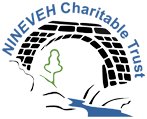 UK based schools and not for profit organisations can apply for funding to the Nineveh Charitable Trust for a broad range of projects and activities that promote a better understanding of the environment and countryside, whilst facilitating improved access, education and research.
UK based schools and not for profit organisations can apply for funding to the Nineveh Charitable Trust for a broad range of projects and activities that promote a better understanding of the environment and countryside, whilst facilitating improved access, education and research.
Whilst the Trust does not specify a minimum or maximum grant amount that can be applied for, an analysis of previous grants would suggest a maximum of £5,000 per year for up to three years. Previous projects supported include Castlemilk Day Nursery which received a grant of £5,000 to build a multi-function shelter with provision for special needs teaching; and St Joseph's Specialist School & College, which received a grant of £4,000 towards a community garden expansion.
Applications can be submitted at any time.
Details here.
A&S Landscape guides to writing Grant Applications for schools
 There are many grant providers which award funds to schools, but it can be hard to find the right scheme and write a successful application. This web page contains a range of free resources to assist you in securing funds for your school. Including an extensive list of grant providers and a free ‘Writing Successful Grant Applications’ guide.
There are many grant providers which award funds to schools, but it can be hard to find the right scheme and write a successful application. This web page contains a range of free resources to assist you in securing funds for your school. Including an extensive list of grant providers and a free ‘Writing Successful Grant Applications’ guide.
Details here.
The Royal Society Partnership Grants
 Do you have a great idea for bringing research alive in school?
Do you have a great idea for bringing research alive in school?
Partnership Grants of up to £3,000 are available to schools to enable students, aged 5 – 18, to carry out science, technology, engineering, mathematics, computing or data science projects. Additionally, introduced in 2020, there is a new extension to the scheme called Tomorrow's climate scientists. This extension will fund schools to research specifically into climate change and biodiversity issues. The application process for Tomorrow's climate scientists is the same as for the main scheme.
Why apply for this scheme?
The Partnership Grants scheme offers up to £3000 to UK schools or colleges to buy equipment to run a STEM investigation project in partnership with a STEM professional (research or industry). Successful projects:
- Deliver a better understanding of the latest developments in STEM;
- Improve perceptions of those working in STEM professions;
- Give students pride and ownership in STEM from participation in the investigative process.
Who can apply for this scheme?
Whilst the initial application must be started by the school partner so that they are the primary applicant, there needs to be two project partners on the same application form. The partnership needs to be established before starting the application. The two partners are:
- School partner (the primary applicant): any teacher or support staff at the main school, such as a computing teacher or a science technician; and a
- STEM partner: an individual that is currently working in a STEM related profession, such as a researcher or analyst.
The 2025 application round will open in February 2025 with three possible submission deadlines across the year.
Details here.
The Ironmongers' Company STEM Grants
 In response to the much publicised skills gap in the British engineering industry, the Ironmongers’ Foundation wishes to support initiatives that encourage talented young people to study science subjects at school and go on to pursue engineering-related further education or vocational training. The Foundation works in partnership with other organisations to deliver specific projects, which must meet the following criteria:
In response to the much publicised skills gap in the British engineering industry, the Ironmongers’ Foundation wishes to support initiatives that encourage talented young people to study science subjects at school and go on to pursue engineering-related further education or vocational training. The Foundation works in partnership with other organisations to deliver specific projects, which must meet the following criteria:
- Grants are made to registered or exempt charities only. Projects involving corporate partners must have charitable purposes and be for public benefit, not private gain.
- Activities must be within the UK, with a preference for urban areas outside London and particularly areas in the north and midlands with a manufacturing presence.
- Preference will be given to projects engaging young people from disadvantaged backgrounds. Participants must be under the age of 25.
- Activities must be additional to those funded by government or other sources e.g. covered by school budgets. The Foundation prefers to support smaller projects where its contribution can make a real difference.
- Projects should have clear objectives and measurable outcomes.
Deadlines are December 1st, April 1st and August 1st.
Details here.
Royal Society of Chemistry Enhanced Equipment Grant
 These funds are awarded against bids for equipment that cannot be purchased through a school’s mainstream teaching budget and which would enrich the learning experience of students in either primary (science) or secondary (chemistry) studies.
These funds are awarded against bids for equipment that cannot be purchased through a school’s mainstream teaching budget and which would enrich the learning experience of students in either primary (science) or secondary (chemistry) studies.
In particular, this would be for equipment that supports delivery of the practical aspect of chemistry education and an application will be enhanced by a demonstration of the diversity of application of the equipment within and between student cohorts.
The application will be made by a teacher at a primary or secondary school for up to £1000.
Details here.
Royal Society of Chemistry Funding for Chemistry Clubs
 The funds are targeted at activities run at schools/ colleges outside the normal science timetable which may be focused on generating interest in chemistry in all ability levels or which may provide opportunities to stretch and challenge the already able and motivated.
The funds are targeted at activities run at schools/ colleges outside the normal science timetable which may be focused on generating interest in chemistry in all ability levels or which may provide opportunities to stretch and challenge the already able and motivated.
Applications from existing chemistry clubs looking to expand/ enhance activities would be welcome as would those from colleagues interested in starting a club.
An application would need to indicate how the longevity of the proposal was ensured and how best practice and experience from it might be shared within and between other (perhaps feeder) schools.
The application will be made by a teacher at a primary or secondary school for sums up to £1000.
Details here.
Groundwork list of Community Grants across the UK

Groundwork has a page on its website dedicated to grants for community groups and projects around the UK.
More information available here
Funding for Capital Projects in Secondary Schools and Sixth Form Colleges (UK)
 From May 2019, secondary schools and colleges that have reached a level of excellence will be eligible to apply for a grant of up to £50,000 towards 50% of the cost of capital projects through the Wolfson Foundation’s Secondary Education programme. Sixth form colleges are eligible to apply for up to £100,000.
From May 2019, secondary schools and colleges that have reached a level of excellence will be eligible to apply for a grant of up to £50,000 towards 50% of the cost of capital projects through the Wolfson Foundation’s Secondary Education programme. Sixth form colleges are eligible to apply for up to £100,000.
The Wolfson Foundation’s Secondary Education Programme is primarily dedicated to supporting the teaching of A-Levels and GCSEs at high-achieving state-funded schools and sixth form colleges.
Schools and colleges that have reached a level of excellence determined by a combination of criteria, but mainly through the receipt of an outstanding Ofsted assessment, are eligible to apply.
More information here.
IoPW Funding
 Do you have ideas for extra-curricular opportunities for your students?
Do you have ideas for extra-curricular opportunities for your students?
The Institute of Physics Wales’s Public Engagement grant scheme is designed to give financial support of up to £750 to individuals and organisations running physics-based events and activities in Wales.
This grant scheme is open all year round and applications will be assessed by the Institute of Physics in Wales Committee. Successful applicants will be notified by email of the outcome within six weeks of the closing date.
The Institute of Physics centrally also offers grants of up to £600 to schools.
Details here.
Funding for Metallurgy and Materials Science Education (UK)
 The Worshipful Company of Armourers and Brasiers is one of the leading charities in the UK supporting metallurgy and materials science education. From primary school through to postgraduate levels, funding is available for science equipment and projects, or travel to scientific events or institutions.
The Worshipful Company of Armourers and Brasiers is one of the leading charities in the UK supporting metallurgy and materials science education. From primary school through to postgraduate levels, funding is available for science equipment and projects, or travel to scientific events or institutions.
Primary schools can apply for grants of £600 and Secondary schools for £1,000.
Details here.
Awards for All (UK)
Awards for All supports a wide range of activities in England, Scotland, Wales and Northern Ireland, including education, heritage, environment, health, community activities; and in most countries, sports and arts.
One example of a school that has recently received funding is Treloweth Community Primary School in Cornwall. The school will use funding of £9,940 to create a learning hub for the community. This will improve facilities and create an environment for various activities, including family learning, drop in sessions for parents and after school clubs.
Applications are received on a continuous basis.
Details here.
Free Trees for Community Groups and Schools (UK) – Woodland Trust
Schools across the UK, nurseries, colleges, universities, and other groups can apply for up to 420 trees to improve their local environment. Tree packs available include hedging, copse, wild harvest, year round colour, working wood, wild wood and urban trees.
More information here.
Grants4Schools
Grants4Schools was launched to help schools access the many different grant schemes available to them. Our aim is to provide a one stop funding information service to schools.
There is a charge to subscribe.
Details here.
